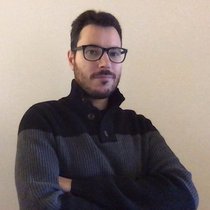Urbanization and population growth are exerting an ever-growing pressure on mobility infrastructure, with densely populated areas around the globe facing increasing levels of traffic congestion and the related negative externalities, such as decreased safety, (noise) pollution, reduced livability etc. The Amsterdam Metropolitan Area is no exception, generating about 50,000 new jobs each year, thereby inducing additional demand for transportation both within the area itself as well as in terms of long-distance commuting. Transportation supply (capacity of roads, railway connections, etc.) is however far less elastic in its growth, this discrepancy being one of the root causes of urban congestion.
In order to endow transport supply with indispensable flexibility, Marco Rinaldi seeks to investigate fundamental and practical aspects of multimodal mobility management, in order to both maximize the performance of existing traffic infrastructure, while concurrently supporting the introduction of environmentally conscious mass transit applications, thereby contributing to the cause of sustainable future mobility. Operating at the nexus of control theory, optimization, complex networks and artificial intelligence, Marco develops mathematical models and techniques that aim to support traffic authorities in achieving socially optimal performances. Within AMS Institute, Marco supports the municipality of Amsterdam’s Chief Technology Office in its effort to digitalize transportation management, through the Institute’s flagship Innovation center for Digital Mobility management (IDM) project, specifically concerning the development of the Mobility Management Central of the Future (Mobiliteitscentrale van de toekomst).
“A holistic approach to mobility management is essential to foster accessibility, sustainability and performance in the urban environment.”
Marco Rinaldi
Former Research Fellow at AMS Institute

Bio
Dr.ir. Marco Rinaldi is Research Fellow at AMS Institute and Assistant Professor at TU Delft, in the Transport & Planning department. After completing his undergraduate studies in Computer & Automation/Control Engineering in Italy, he obtained is PhD at the KU Leuven in 2016, entitled ‘Decentralized anticipatory network traffic control’. After a postdoctoral period at the University of Luxembourg, where he contributed to the national agenda on electrification of Public Transportation, he joined AMS Institute and TU Delft in November 2020. His research interests encompass applications of control theory, optimization and artificial intelligence to engineering problems in transportation management.
PI: Prof. Dr. Ir. Serge Hoogendoorn